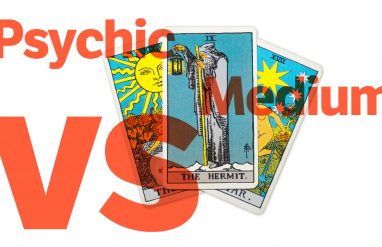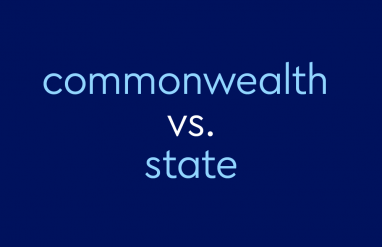Let’s say you’re in a thorny situation, and you find yourself wanting to offer comfort. Do you have a word or two in your back pocket for this moment? Do you assure your friend it will be alright? Or do you ensure them they’ll feel better soon? … Or is the word you’re looking for insure?
Confused? This is a tricky one. Assure, ensure, and insure ultimately derive from the Latin word sēcūrus meaning “safe.” As with many words that share ancestors, these terms’ meanings can overlap and, in some cases, they still function as synonyms. In fact, ensure and insure have a very close history: insure developed as a spelling variant of ensure and functioned this way for hundreds of years. Essentially, they were the same word!
So what’s the discerning word lover to do? Well, for one thing, we can help you focus on several ways assure, ensure, and insure are used distinctly today. We assure you it’s not as painful as it sounds!
What does assure mean?
Assure was the first of the three to enter English with a reflexive sense of “to have confidence, trust, rely.” Today, the term is most commonly used to mean “to state with confidence to” or “to cause to know surely,” conveying the action of putting someone’s mind at ease, as in Despite all the challenges, she assured us that everything would turn out all right. While the words ensure and insure do function as synonyms for assure in some instances, today this use of assure (“to state with confidence to”) is unique. As The Chicago Manual of Style notes, “We ensure events and insure things. But we assure people that their concerns are being addressed.”
What does ensure mean?
Ensure entered English shortly after assure with the meaning “to declare earnestly to; state with confidence to.” Today it is widely used to convey the action of securing or guaranteeing an outcome or development, as in This ticket will ensure you get a seat at the event.
What does insure mean?
As we’ve mentioned, insure entered English as a variant of ensure. However, in the mid-1600s, insure picked up a financial sense of “to pay a sum to secure indemnity to or on, in case of loss, damage, or death.” In general senses, ensure and insure are interchanged, but this financial sense is what distinguishes insure today.
We primarily use insure to talk about providing or obtaining insurance, as in After all his car accidents, the company refuses to insure him again. Insure can be used to talk about other kinds of risk, but in that usage, the term is typically followed by the word against, as in We insured against disappointment by making an early reservation.
How to use assure, ensure, and insure
As you can see, all of these terms address the action of making certain or guaranteeing, but each in a slightly different way. Insure is the only of the three that explicitly refers to insurance policies and financial risk. The following examples will help clarify its use:
- Before you drive that car, you know you have to insure it, right?
- It cost Armando a lot of money to insure his old house.
To assure is to “declare earnestly” or with confidence, similar to reassure, a word that appears as a synonym for assure. To ensure is related to the outcome of a situation. For example:
- The teacher assured the students that they were prepared for the test.
- Can you assure us that we have enough vaccines for everyone?
- The team needs to practice as much as it can to ensure a decisive victory Saturday.
- With a budget that small, we can’t ensure success in this marketing campaign.














